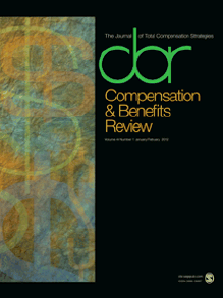Book Review: ‘Pay: Why People Earn What They Earn’
 Hallock, K. F. (2012). Pay: Why People Earn What They Earn and What You Can Do Now to Make More.
Hallock, K. F. (2012). Pay: Why People Earn What They Earn and What You Can Do Now to Make More.
Cambridge, England: Cambridge University Press. pp. 240
Read the review by Frank L. Giancola, published in Compensation Benefits Review’s November/December 2012 issue:
An intriguing new book on employee compensation was published in September of 2012 that merits our attention. The title of the book is Pay: Why People Earn What They Earn and What You Can Do Now to Make More. Its author is Kevin Hallock, a labor economist at Cornell University. The objective of the book is to explain to a general audience how their pay is determined, based primarily on lessons from labor economics and human resources management.
I do not know of another book that attempts to do this with such brevity and focus—226 pages. Textbooks on employee compensation achieve the same goal, but they are considerably longer and cover more topics. For example, one popular text, Compensation by George Milkovich, Jerry Newman and Barry Gerhart, is 690 pages in length. Because of the length of textbooks and their focus on educating professionals, the average person may not develop a clear idea of how their pay is determined even if they have the will and patience to read a textbook.
Click here to continue reading, and follow this link to receive e-alerts from CBR featuring up-to-date analyses and information on salary and wage trends, labor markets, pay plans, incentive compensation, legal compliance, retirement programs, and health care benefits.



























































































